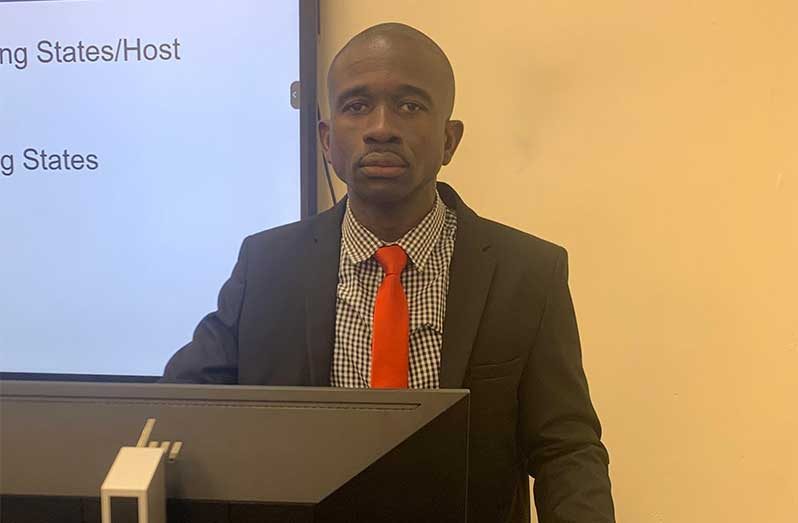THE Regional Security System Training Institute (RSS TI) has unveiled a robust training schedule for 2025, featuring 42 specialised courses designed to enhance the operational readiness and human capacity of law enforcement and military agencies across its Member States.
The comprehensive curriculum, developed through a 2023 Training Needs Assessment (TNA) and insights from the RSS Regional Crime Observatory, targets high-priority areas such as Cybercrime Investigation, Financial Crime and Asset Recovery, Leadership and Management, Maritime Operations, Crime Scene Management, Criminal Investigations, Prosecution, and Instructor Development.
Assistant Staff Officer at the RSS TI, Dr. Raffie Browne, highlighted that each course is tailored to bridge identified capability gaps while equipping officers to address both recurring and emerging security threats.
“Our curriculum reflects the real challenges faced by our Member States. These programmes are not only designed to respond to present issues but also to prepare participants for emerging risks, including cybercrime, artificial intelligence threats, and climate-related security challenges,” Dr. Browne explained.
He added that the courses will cater to personnel at all levels, from junior officers to senior leadership.
Each course will offer hands-on, practical learning experiences and will culminate with the presentation of a certificate upon successful completion.
In a significant milestone for the institution, the RSS TI was officially designated a CARICOM Vocational Qualification (CVQ) Centre by the Technical and Vocational Education and Training (TVET) Council in Barbados in August 2024.
This achievement means participants can now earn regionally-recognised certifications in four disciplines, with additional certified programmes expected to be introduced over time.
The institute has also forged partnerships with regional and international tertiary institutions to ensure that some of its offerings meet the standards for accredited academic programmes.
Dr. Browne also announced that the RSS TI is currently pursuing full accreditation from the Barbados Accreditation Council (BAC) and the International Association of Directors of Law Enforcement Standards and Training (IADLEST).
“This strategic move will cement the RSS TI’s role as a regional leader in professional law enforcement training,” he noted. “While accreditation involves a significant financial investment, the long-term benefits—including increased institutional credibility, enhanced course quality, access to funding, and improved performance—are substantial.”
He emphasised that the goal is not merely to train officers for today’s challenges but to shape the future of security in the Caribbean.
The RSS TI’s expanded training programme marks a decisive step toward building a more secure and resilient region, empowering security professionals with the skills and certifications needed to uphold public safety and regional stability.





.jpg)








